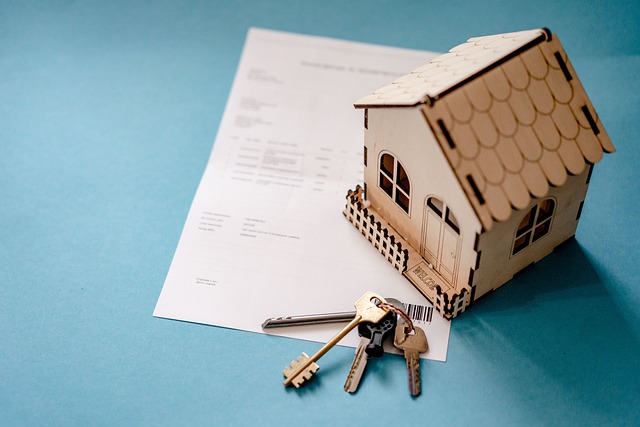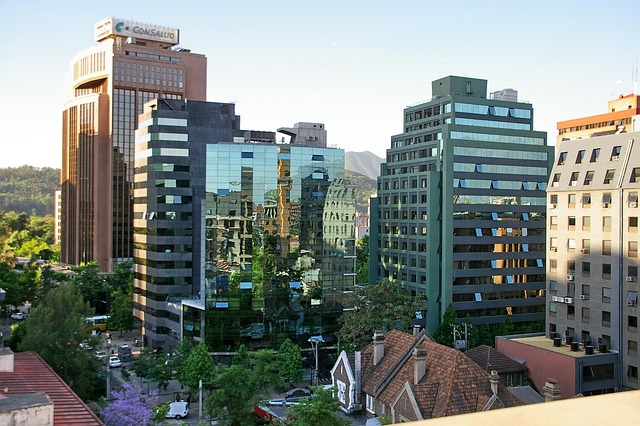Singapore allows foreigners to purchase properties, with restrictions on landed properties for the first five years after their introduction to the market. These regulations are designed to balance foreign investment with local housing needs, ensuring that Singaporeans have access to homes. The real estate market in Singapore is characterized by its limited land and high demand, and the government maintains a close watch over it to ensure stability and sustainability. Foreign investors must stay informed about evolving regulations and consider the legal structure for ownership, which is managed by the Singapore Land Authority (SLA). Investors have access to various property types, including condominiums and landed houses, with specialized mortgage products available for non-residents. Tax implications include an Annual Property Tax and a 15% income tax on rental income for foreign individuals who rent out their properties. While there is no capital gains tax in Singapore, stamp duties are payable upon purchase. For long-term investment, understanding economic indicators, demographic trends, and property laws is crucial, along with developing an exit strategy that considers market timing and global economic shifts to maximize returns from this dynamic and regulated market. Can foreigners buy property in Singapore? Yes, with clear guidelines and a strategic approach, it is certainly possible for foreigners to invest in the Singaporean real estate market.
Singapore’s real estate market has long attracted global investors, offering a blend of stability, growth potential, and strategic location. For those asking, “Can foreigners buy property in Singapore?” the answer is affirmative, but with certain conditions and considerations. This article delves into the intricacies of purchasing property as a foreigner in this Asian hub, outlining the legal framework, financing options, tax implications, and strategic planning for long-term investments. Whether you’re considering residential living or lucrative real estate ventures, understanding the nuances of Singapore’s property landscape is key to maximizing returns. Join us as we navigate the pathways for foreign buyers looking to capitalize on Singapore’s vibrant market.
- Overview of Singapore's Real Estate Market for Foreign Investors
- Legal Framework Governing Foreign Property Ownership in Singapore
- Types of Properties Available to Foreign Buyers in Singapore
- Strategies for Financing Your Purchase as a Foreign Investor
- Tax Considerations and Obligations for Non-Resident Property Owners in Singapore
- Long-Term Prospects and Exit Strategies for Foreign Property Investors in Singapore
Overview of Singapore's Real Estate Market for Foreign Investors

Singapore’s real estate market has long been a subject of interest for foreign investors due to its stability, transparency, and robust economic growth. Can Foreigners Buy Property In Singapore? The answer is affirmative, with certain conditions applied. The island nation offers a conducive environment for overseas property buyers, supported by a clear legal framework and a strong rule of law. Foreigners are allowed to purchase properties without restrictions on residential lands but are barred from purchasing landed property such as terraced houses, bungalows, or executive condominiums within the first five years of their introduction into the market. This policy is designed to safeguard the local population’s access to housing while still allowing for foreign investment.
Singapore’s property market is characterized by its limited land space and high demand, which has led to a competitive and dynamic environment. The government regulates this market closely to ensure its stability and sustainability. For foreign investors considering Can Foreigners Buy Property In Singapore, it is crucial to stay abreast of these regulations as they can change over time. Investment opportunities span across various sectors, including luxury condominiums, commercial properties, and industrial spaces. The strategic location of Singapore within Asia, its well-developed infrastructure, and its status as a global financial hub make it an attractive destination for property investment. Foreign investors should conduct thorough due diligence and consider the long-term implications of their investments in this vibrant market.
Legal Framework Governing Foreign Property Ownership in Singapore

In recent years, Singapore has established a clear legal framework that governs foreign property ownership, making it an attractive destination for international investors interested in the real estate market. The legal parameters are set forth by the Singapore Land Authority (SLA), which imposes certain restrictions on foreigners buying properties within the country. Under the Singaporean legislation, foreigners are allowed to purchase condominium units without restriction, as these are considered “limited common property” and do not require approval from the SLA. However, when it comes to landed property, such as houses or apartments in a non-condominium development, foreigners must obtain approval from the SLA before they can make a purchase. This regulatory framework is designed to maintain a stable housing market and ensure that local residents have access to adequate housing. The approval process for landed properties involves assessing the applicant’s financial status and investment history, ensuring that the acquisition aligns with Singapore’s economic interests and housing policies. Moreover, there are additional rules for foreigners who wish to buy properties in what is termed “residential areas outside the city.” These areas have different eligibility criteria and require even stricter approval processes from the relevant authorities. Understanding and navigating this legal landscape is crucial for any foreigner looking to invest in Singapore’s property market, as it can significantly impact their ability to purchase and the type of property they are permitted to own.
Types of Properties Available to Foreign Buyers in Singapore

Foreign investors have a variety of property options in Singapore, each with its own unique appeal and potential for returns. Residential properties, such as condominium units, landed houses, and executive apartments, are popular among foreign buyers due to the perennial demand for quality living spaces. These residences often come with premium amenities and are situated in desirable locations, offering a comfortable lifestyle along with investment potential. Additionally, Singapore’s real estate market includes a range of commercial properties, including offices, retail spaces, and industrial buildings. The strategic location, robust economic climate, and supportive government policies make these commercial properties attractive for foreign investors looking to expand their business operations or diversify their investment portfolio. For those interested in the property market here, it is crucial to research the different types of properties available, understand the legal framework governing foreign ownership, and consider factors such as property location, market trends, and the potential for capital appreciation when making an investment decision. Can Foreigners Buy Property In Singapore? Yes, they can, with certain restrictions that ensure a stable and balanced property market. Foreign buyers should work with local real estate experts to navigate the acquisition process and identify properties that align with their investment objectives.
Strategies for Financing Your Purchase as a Foreign Investor

Foreign investors looking to purchase property in Singapore have several financing options to consider, enabling them to maximize returns while adhering to local regulations. One strategy involves leveraging various mortgage products tailored for foreigners. Banks in Singapore offer a range of home loan packages that cater to different financial scenarios and investment profiles. It’s advisable for potential investors to compare these products based on interest rates, tenure, and eligibility criteria. Additionally, considering the current economic climate and property market trends is crucial when selecting a mortgage. Foreign buyers should also be aware of the Additional Buyer’s Stamp Duty (ABSD) and the Loan-to-Value (LTV) limits that apply to them, as these factors significantly influence the investment’s profitability and risk profile. By carefully evaluating these aspects, foreign investors can make informed decisions that align with their financial goals and market conditions, thereby enhancing their chances of securing a profitable property investment in Singapore.
Tax Considerations and Obligations for Non-Resident Property Owners in Singapore

Non-resident property owners in Singapore, including those who can foreigners buy property in Singapore, need to be cognizant of the tax implications associated with their real estate investments. The Inland Revenue Authority of Singapore (IRAS) imposes an Annual Property Tax on all properties, which is levied based on the assessed value of the property and paid annually. While property taxes are relatively straightforward, income tax considerations can be more complex for foreigners.
Foreign individuals who purchase property in Singapore are subject to a prevailing rate of 15% on rental income earned from their properties. This tax applies regardless of whether the income is remitted out of Singapore. Non-residents must file an annual tax return if they earn rental income, even if the income is less than the threshold for filing as per Singapore’s tax regulations. It’s also pertinent to note that capital gains tax is not a feature of Singapore’s tax regime; thus, profits from the sale of property are generally not taxable for foreign owners. However, stamp duties are applicable at the time of acquisition and must be considered in the overall financial planning of the investment. Understanding these tax considerations and obligations is crucial for non-resident property owners to ensure compliance with Singapore’s tax laws and to maximize their returns on investment.
Long-Term Prospects and Exit Strategies for Foreign Property Investors in Singapore

Foreign investors looking to maximize returns from the property market in Singapore have a range of strategies at their disposal, particularly when considering the long-term prospects. The Republic’s property market has historically shown resilience and growth over the years, making it an attractive investment destination for foreigners who can buy property in Singapore. Long-term investment often involves capital appreciation and rental yields. To maximize returns, investors should conduct thorough due diligence on market trends, including economic indicators, population growth, and supply and demand dynamics within specific districts.
When planning their exit strategy, investors need to consider various factors such as the intended duration of holding the property, potential changes in Singapore’s property laws, and global economic shifts. A well-thought-out exit plan could involve capitalizing on a booming market by selling the property at an appreciation peak or leveraging rental income for a steady cash flow over time. Alternatively, investors might opt to refinance and reinvest the equity into other profitable ventures. Regardless of the chosen strategy, staying informed about Singapore’s property regulations and market conditions is crucial for making informed decisions that align with long-term investment goals. Understanding the nuances of the market and adapting strategies accordingly will be key to navigating the opportunities and challenges associated with foreign property investment in Singapore.
